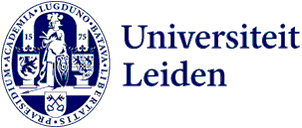
Arteriosclerosis and drug discovery: two young researchers win Krijn Rietveld Award for innovative research
One discovered that arteriosclerosis resembles an autoimmune disease, while the other developed a system to aid in the search for new medications. For these achievements, Marie Depuydt and Jurren de Groot were awarded the Krijn Rietveld Memorial Innovation Award on the evening of Tuesday 4 June.
For the fifth time, the Leiden University Fund and dsm-firmenich presented the Krijn Rietveld Memorial Awards. This year, there were two awards. Marie Depuydt received the Krijn Rietveld Doctoral Societal Impact Award for her publication on arteriosclerosis, and Jurren de Groot received the Graduate Societal Impact Award for his master’s thesis.

Unique combination of skills
‘Marie’s work is a unique combination of biomedical techniques, research with human tissue, and computer models,’ says jury member Wim Klop (and vice-president of dsm-firmenich). ‘Her work helps us better understand arteriosclerosis. Marie has directly translated her new insights into ideas for new treatments. The research group also discussed their results with members of the Dutch Cardiovascular Alliance to consider potential applications.’
Arteriosclerosis resembles an autoimmune disease
In her dissertation, of which this article is a part, Dupuydt demonstrated the specific cells present in the plaque that narrows an artery. The many T-cells she found indicate an autoimmune disease. Depuydt: ‘If we want to prevent a heart attack, we must look beyond cholesterol and high blood pressure and also consider our immune system. The inflammatory reaction measurable in arteriosclerosis has been known for decades, but the exact role of the immune system remained unclear.’
Depuydt graduated cum laude and now works as a postdoc researcher at LACDR to learn more about how we can disable harmful T-cells. She shares the award with fellow researcher Frank Schaftenaar. ‘We share the position of first author on our scientific paper, and he has put a lot of work into it, just like me.’
Scientific publication
Read the scientific paper of Marie Depuydt and her colleagues: Depuydt, M.A.C., Schaftenaar, F.H., Prange, K.H.M. et al. Single-cell T cell receptor sequencing of paired human atherosclerotic plaques and blood reveals autoimmune-like features of expanded effector T cells. Nat Cardiovasc Res 2, 112–125 (2023). https://doi.org/10.1038/s44161-022-00208-4

More efficient drug discovery
For his master’s thesis, Jurren de Groot developed a new computer model that helps scientists better predict whether and how a potential drug binds to RNA. RNADock uses a form of artificial intelligence: De Groot trained the computer with numerous examples of how RNA and drugs interact. The focus on RNA is particularly promising. Most drugs currently target proteins, but RNA therapies have great potential to provide us with new and better medications.
Drug development is a time-consuming and costly process with much trial and error. RNADock makes this process faster and more efficient. ‘Jurren’s model outperforms traditional models based on physical chemistry,’ says jury member Thomas Bäck (Professor at Leiden Institute of Advanced Computer Science). ‘And, as is the case with machine learning, the model will only improve as more data is fed into it.’
'This highlights the innovation in Jurren's work'
‘Jurren is a dedicated and motivated student,’ say supervisors Professor Gerard van Westen and PhD candidate Andrius Bernatavicius from LACDR. ‘His background at the LIACS allowed him to truly think out-of-the-box. During his internship with us, Jurren explored new ways to use the DiffDOck algorithm, which predicts the three-dimensional structure of proteins and drugs. Only recently did the major AI company DeepMind present a similar method as part of their AlphaFold 3 algorithm, demonstrating how innovative Jurren’s work was.’
Header image: From left to right Wim Klop (Vice President dsm-firmenich), Jurren de Groot, Vice Dean Bart de Smit, Marie Depuydt and Lilian Visscher (Director Alumnirelations and Leiden University Fund). Photo: Monique Shaw
About the Krijn Rietveld Memorial Innovation Award
In memory of Krijn Rietveld (1956 - 2018), the Leiden University Fund and Royal DSM established the Krijn Rietveld Memorial Innovation Award. This annual award, launched in 2020, recognises and rewards excellence in innovative research that contributes to a more sustainable world.
On Tuesday, 4 June, 2024, the award was presented for the fifth time. This year, it consisted of two prizes: the Krijn Rietveld Graduate Societal Impact Award (€2,500) and the Krijn Rietveld Doctoral Societal Impact Award (€3,000). A total of 11 young researchers were nominated.
